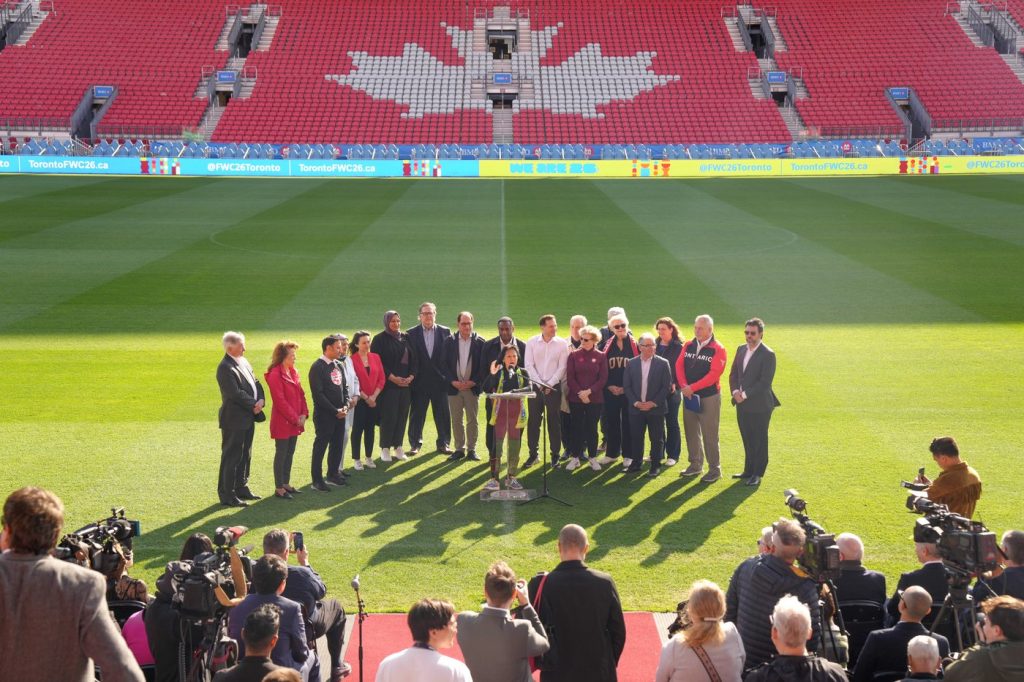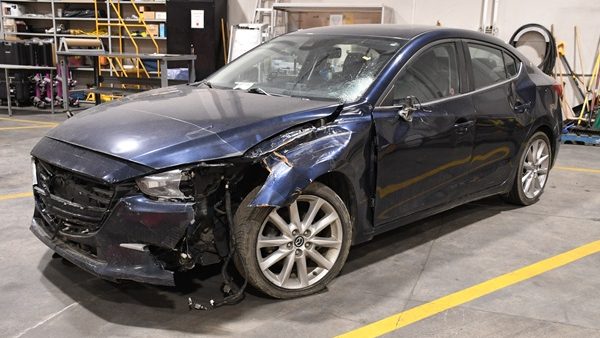Councillor calls out Vancouver, Toronto for hosting FIFA World Cup matches

Posted June 12, 2025 8:35 am.
One Canadian politician is weighing in on Vancouver and Toronto hosting some matches during the 2026 FIFA World Cup, which gets underway in just under a year.
Josh Matlow, a city councillor for Toronto-St. Paul’s, says the party will be fun, but officials are ignoring the financial hangover that will follow.
“I am significantly concerned about the escalating costs and the impact it will have on the basic priorities that our communities rely on city hall for every single day, that will be unfunded if we’re spending too much money on games,” he told 1130 NewsRadio Vancouver from his home in Toronto.
“After the party is over, will we even have enough money to sweep up the street? I don’t want us to be in a situation that we’ve been so obsessively focused about the goal of hosting that we shoot an own goal by not ensuring we have enough funds to invest in the basic priorities.
“We’re going to have to face a reality as to whether or not it’s worth it given the price keeps escalating.”
Both Vancouver and Toronto appear to be finalizing where the funding for the games is coming from.
Toronto is hosting six games at a cost of roughly $380 million, with the city putting forward $178.7 million, the federal government agreeing to pitch in $104.3 million, and the province of Ontario chipping in $97 million.
But Matlow says that’s changed.
“We are now seeing the province claw back roughly $40 million here in Ontario. They are not living up to, what I would submit, is their responsibilities to help fund the games, and the city is no position to, once again, have that financial burden downloaded … to cover the price of the games when we need to invest in proper snow-clearing, paving roads and making sure we address affordability.”
Meanwhile, people in B.C. haven’t had an update on the bill for a long time; however, previous estimates have it between $483 million and $581 million, which includes upgrades to BC Place, which will be home to seven games.
Matlow thinks the decision to host was marred by ego, and all that’s happened so far is boasting by officials about how great it will be, when in reality, it will be incredibly expensive at a time when the economy is tanking.
He worries financial priorities will be shifted because of the World Cup.
“The costs keep going up, whether it be policing, whether it be health care, whether it be transportation, and Toronto is a good example of a city that we keep raising property taxes because we have infrastructure that’s degrading, services that have declined,” he explained.
“We’ve got parks that need maintenance, we’ve got roads that need paving, and vulnerable people who need our support. Ultimately, I don’t want to see a sacrifice of basic services and the infrastructure improvements that we need and rely on just to go by the wayside because we’re excited about the games.”
Matlow says the City of Toronto is buying ticket packages to “essentially scalp them later for higher prices.” He says he’s not OK with that.
“This is what we’re resorting to. And the reason for that in Canada, the provincial and federal governments have taxes that grow with the economy. In other words, sales taxes will benefit from the number of visitors that come to Toronto, but our property taxes aren’t affected by how many people come and stay in our hotels and invest in our local economy,” he explained.
“So, the province and the feds will do just fine, I imagine, but cities, because we’re not equipped with the revenue tools to grow with the economy, will be left with the bill, and that’s not right.”
Some officials have touted the fact that hosting duties will put Vancouver and Toronto on the worldwide map. Matlow doesn’t buy it.
“We also don’t want to be on the map for being cities that are unlivable, unaffordable. Cities that don’t provide basic services to our residents. And I just want to make sure that while we are so excited and driven to get everyone’s attention on us, that we don’t lose sight of the people that we should be paying attention to, which is our residents,” said Matlow. “I think it’s difficult for many political bodies to concede that they screwed up.”
He wonders if some people in the decision-making process in both Canadian cities are regretting giving FIFA the green light.
“This is a really awful deal. I really believe we need to be honest with residents about the challenges we face. Pragmatically speaking, we have agreed, contracts are signed, so we do need to make the best of it. We need to be creative. We need a strategy to make taxpayers right. We need to be really creative about how we raise more revenue to be able to make sure these games are a success.”
B.C.’s Ministry of Tourism is confident the event will create jobs.
“On average, people who visit B.C. return four times in their lifetime, according to Destination BC and BC Stats. They fill up hotel rooms, buy from local businesses and take their positive experiences home, encouraging others to come. Destination B.C. estimates that hosting the FIFA World Cup 26™ means B.C. will benefit from an estimated $1 billion in additional visitor spending from 2026-2031,” it said in a statement to 1130 NewsRadio.
The B.C. provincial government says it, along with the city, is committed to transparency and will be releasing cost estimates around the World Cup in the next few weeks.
Meanwhile, as fans wait for the games, there are also still a lot of unknowns, including details around security and ticket prices.
The tournament will include 104 games across 16 stadiums in Canada, the U.S., and Mexico.








